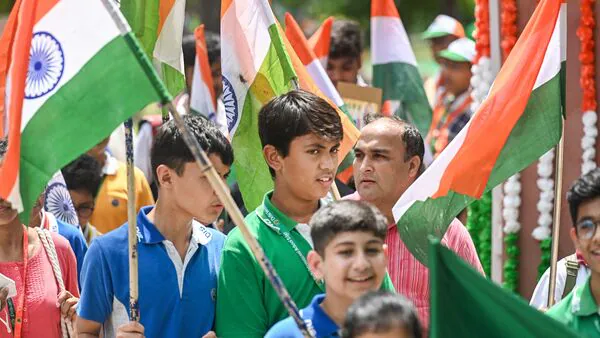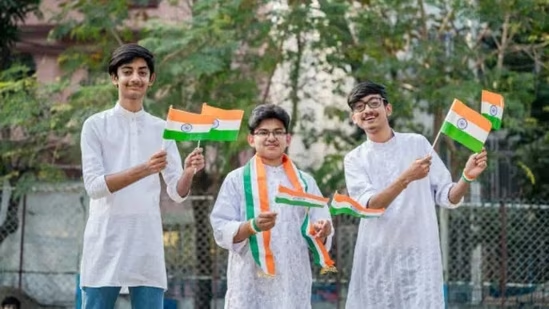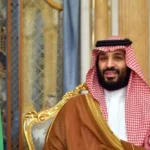India’s 78th Independence Day: Celebrating Freedoms and Reflecting on Unfreedoms
India is on the brink of celebrating its 78th Independence Day on August 15, 2024—a day that resonates deeply in the hearts of millions.
This occasion is a powerful reminder of the nation’s long, arduous journey toward freedom, which culminated on August 15, 1947, after nearly two centuries of British colonial rule.
As we stand on the threshold of this historic day, Prime Minister Narendra Modi is set to take the stage at the iconic Red Fort.
His speech will mark his 11th address to the nation on Independence Day, continuing a tradition that began with Jawaharlal Nehru’s legendary speech, “A Tryst With Destiny,” delivered at the stroke of midnight on August 15, 1947.
The Struggle for Independence: A Journey of Sacrifice
It was a journey mark by relentless struggle, immense sacrifice, and unwavering determination.
The fight for freedom was not just about overthrowing British rule; it was about reclaiming India’s soul, its culture, and its identity.
The leaders of the freedom movement, including Mahatma Gandhi, Subhas Chandra Bose, Sardar Vallabhbhai Patel, and countless others, played pivotal roles in uniting the nation against the oppressors.
Their efforts were fueled by the dreams of millions who longed for a free and sovereign India.
A Nation United in Diversity
One of the most remarkable aspects of India’s independence movement was its ability to unite people from diverse backgrounds.
India is a land of incredible diversity, with numerous languages, religions, and cultures coexisting harmoniously.
The freedom struggle brought people together, transcending these differences to fight for a common cause.
The slogan “Unity in Diversity” became more than just words; it became the essence of India’s struggle for freedom.
The Role of Women in the Freedom Struggle
While the contributions of male leaders in the freedom movement are widely recogniz, it’s essential to acknowledge the pivotal role played by women.
Women like Sarojini Naidu, Rani Lakshmibai, and Aruna Asaf Ali were at the forefront of the struggle, leading protests, organizing movements, and inspiring countless others to join the cause.
Their courage and determination shattered societal norms and proved that the fight for freedom was not limited to any gender.
Women’s participation in the freedom movement laid the foundation for their active involvement in shaping the future of independent India.
The Legacy of Non-Violence
Mahatma Gandhi’s philosophy of non-violence, or Ahimsa, became the cornerstone of India’s freedom struggle.
Gandhi’s legacy of non-violence continues to influence global movements for justice and equality.
It serves as a reminder that even in the face of adversity,
the power of peace and truth can triumph over oppression.
Independence Day: A Time for Reflection
As we celebrate Independence Day, it’s essential to reflect on the freedoms we enjoy today and the responsibilities that come with them.
Independence is not just about breaking free from colonial rule;
it’s about ensuring that every citizen of India has the opportunity to live a life of dignity, equality, and justice.
The Challenges of Modern India
These challenges remind us that the fight for a better India is far from over.
The freedom to speak, express, and live without fear is a right that must protect and cherish.
It’s our collective responsibility to work towards an India where every citizen can enjoy the fruits of freedom.
The Significance of the National Flag
It represents the values of courage, truth, and unity that define India.
On Independence Day, the flag is hoisted across the country, reminding us of the sacrifices made by our forefathers and the ideals they stood for.
The flag serves as a constant reminder that our freedom was hard-earn and that it is our duty to uphold the principles it represents.
It is a symbol of our pride, our heritage,
and our unwavering commitment to building a better India.
Celebrating Independence Day: Traditions and Festivities
Independence Day is celebrate with great enthusiasm and patriotism across India.
From the hoisting of the national flag at the Red Fort to cultural programs,
parades, and fireworks,
the day is fill with activities that reflect the spirit of freedom.
Schools, colleges,
and government institutions organize events to honor the freedom fighters and educate the younger generation about the significance of this day.
It’s a time for all Indians to come together and celebrate the unity, diversity, and resilience that define our nation.
A Vision for the Future
As we look towards the future, it’s essential to remember the lessons of the past.
The values of freedom, equality, and justice that guided our freedom fighters must continue to guide us in the years to come.
The journey towards a better India is a collective one, and it requires the efforts of every citizen.
By working together, we can overcome the challenges that lie ahead and fulfill the dreams of those who fought for our freedom.
Read More: Medical Stocks Amid Rising Mpox Concerns
Conclusion: A Call to Action
Independence Day is not just a celebration; it’s a call to action.
It’s a reminder that the freedom we enjoy today comes with responsibilities.
We must continue to strive for an India where every citizen has the opportunity to thrive,
where justice prevails, and where the values of our freedom fighters are upheld.
As we hoist the tricolor and sing the national anthem,
let us remember the sacrifices that made this day possible and commit ourselves to building a brighter,
more inclusive future for all.










